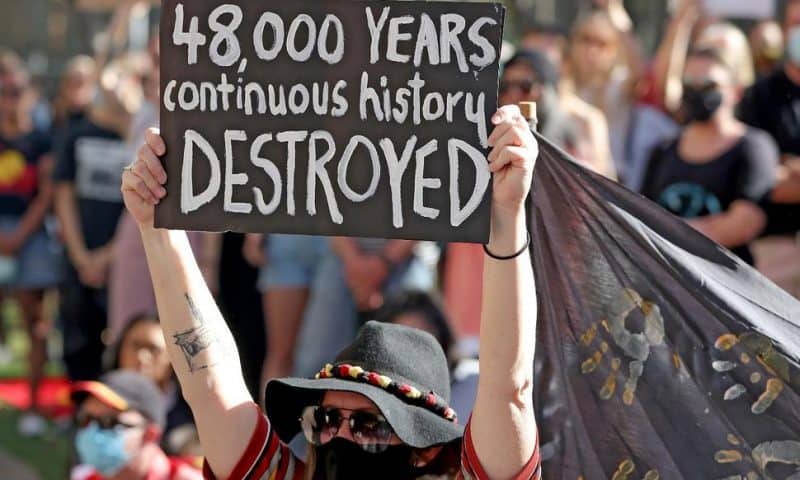Rio Tinto says its chief executive Jean-Sebastien Jacques will lose around $3.5 million in bonuses due to the destruction in May of Australian indigenous sacred sites.
CANBERRA, Australia — Rio Tinto chief executive Jean-Sebastien Jacques will lose around $3.5 million in bonuses due to the destruction of Australian indigenous sacred sites to access iron ore, the mining company said on Monday.
The Anglo-Australia mining giant announced that three executives would lose bonuses following the destruction in May of two 46,000-year-old rock shelters in Juukan George in Western Australia state.
Chris Salisbury and Simone Niven will each lose around $700,000 in bonuses. The full details of their financial penalties will be revealed in the company’s remuneration report next year.
The company has apologized to the rock shelters’ traditional owners, the Puutu Kunti Kurrama and Pinikura people.
“The destruction of the rock shelters should not have happened and we are absolutely committed to listening, learning and changing,” Rio Tinto said in a statement.
Rio Tinto concluded in an internal review that there was “no single root cause or error that directly resulted in the destruction of the rock shelters.”
“The board review concluded that while Rio Tinto had obtained legal authority to impact the Juukan rock shelters, it fell short of the standards and internal guidance that Rio Tinto sets for itself over and above its legal obligations,” a company statement said.
Australian Center for Corporate Responsibility strategy leader James Fitzgerald described the internal report as an insult to traditional owners. Fitzgerald argues that Jacques should be fired.
“There’s no findings in relation to them and yet they’re being fined millions of dollars,” Fitzgerald said of the three punished executives.
“It says to me that this is just a bit of an empty gesture in order to deflect the anger of shareholders and others,” Fitzgerald said.
Fitzgerald hoped a parliamentary committee that’s examining the demolition of the shelters would provide meaningful answers.
The committee’s chairman Warren Entsch said earlier this month that Rio Tinto’s actions in destroying the cultural site “beggar belief.”
“It seems to me that in spite of everything that happened, this was totally avoidable,” Entsch said during a hearing.
“There were a number of warning bells and I’m very interested to find out why those warning bells weren’t investigated further. It just beggars belief,” he added.
The Western Australian government has promised to update indigenous heritage laws that allowed Rio Tinto to legally destroy the sacred sites.
“I think there’s a lot of soul searching going on among some of the mining companies and the Juukan Gorge issue has obviously caused a lot of consideration of their internal practices, and that’s a good thing,” Western Australian Premier Mark McGowan said. “They should always be doing that. But we’ll make sure we bring forward new Aboriginal heritage legislation.”

